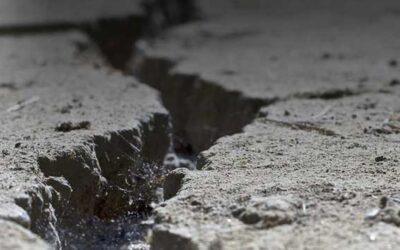Frequently Asked Questions
Who needs earthquake insurance?
All it takes is one. If you don’t have standalone earthquake insurance or an add-on to your homeowner’s policy, it can be financially devastating. Not only because you’ll be paying out of pocket to replace any damaged valuables and personal property, but you’ll also pay out of pocket for any significant damage to your home or foundation.
The western states are among those most likely to experience a significant quake. Three states with particularly high earthquake risk are Washington, Oregon, and California. USGS provides an interactive map that allows you to view the seismic hazard risk of your area.
What do I need to know about earthquake insurance policies?
Like most other types of insurance, there’s a lot of fine print in earthquake policies. To truly compare coverage options, it’s vital that you know what to look for and understand how variations in coverage could affect you in the event you have to use your policy. Some key things you need to know about earthquake policies is what they will and will not payout for.
What you can expect an earthquake insurance policy to pay for:
- Repairs to your home and any attached structures (like an attached garage).
- Personal belongings including furniture, clothes, electronics and most other possessions you keep in your home.
- Living expenses while you aren’t able to live in the house, for example, while it’s being repaired (most of the time there’s a cap).
What’s not covered:
- Flooding isn’t covered by earthquake insurance, even if an earthquake caused the flood. And you should know, floods also aren’t covered by standard homeowner’s insurance. You would need standalone flood insurance. Call our friends at (www.californiafloodinsurance.com) if you need flood insurance.
- Fires – even as a result of earthquakes – aren’t covered by earthquake insurance. But the good news is they are covered by your standard homeowner’s policy.
- Landscaping and fences aren’t usually covered. Neither is exterior masonry, but some companies do offer exterior masonry veneer coverage as an add-on to your earthquake policy. Also, the CEA does not cover pools, while we have carriers that WILL offer coverage.
- Damage to your cars isn’t covered, but if you have comprehensive coverage with your auto insurance policy, it should be covered by that insurer.
- Sinkholes aren’t something many people think about, but they can be more common after a big quake. Most of the time this is not part of a standard Homeowners policy, though a few insurance companies do offer it as an add-on. If yours doesn’t, you can buy separate coverage.
Covered sometimes but not a guarantee:
- Outbuildings are covered by some but not all earthquake policies. If you have a barn, shed, detached garage or other important buildings on your property, you need to make sure to check if they’re covered or if you will need additional insurance.
- Debris removal for post-quake cleanup.
- Land restoration if there’s significant movement.
How much does earthquake insurance cost?
If you’re a renter, you don’t need to worry about dwelling coverage. You just need to make sure you are getting enough personal property coverage to replace all your belongings.
Regardless of where your property falls on the spectrum, we can help you find an earthquake policy that balances coverage and cost.
Why do deductibles matter?
What we see most often in the industry is deductibles of 10-20% of the overall dwelling coverage limits. If your earthquake insurance offers $300,000 of dwelling coverage and your deductible is 20%, you’re looking at a $60,000 deductible in the event of a total loss. What that means for you as you go to rebuild is you’ll get a check from the earthquake insurance company in the amount of your dwelling coverage minus the deductible. In our example, you would get a check for $240,000 to help you rebuild a $300,000 home. Quite a difference. More recently some carriers have come out with more deductible options such as 2,3 and 5%. These would increase the premiums in some cases significantly, but its always great to have options.
When we help our customers compare policy options, we always check the deductible amount, whether multiple tiers are offered, and if there is one deductible for the policy or multiple.
Depending on the risk of your area, you may want to opt for a balance between premium cost and deductibles. If you live in a high-risk area and can afford the premiums, opting for the lowest deductible could maximize your return in the event of a claim.
Where can I get earthquake insurance?
Our insurance experts will assist you in finding policy options that fit your property and budget and comparing them to find the best one for your needs. Plus, we can help you figure out if your current homeowner’s policy offers an earthquake rider or policy add-on as well.
Latest News
Experts predicting THE BIG ONE by 2037
Earthquake Insurance Worth the Gamble?
Amica Insurance to stop offering Earthquake Coverage
We have been getting lots of calls from people insured with Amica, telling us that they have...

